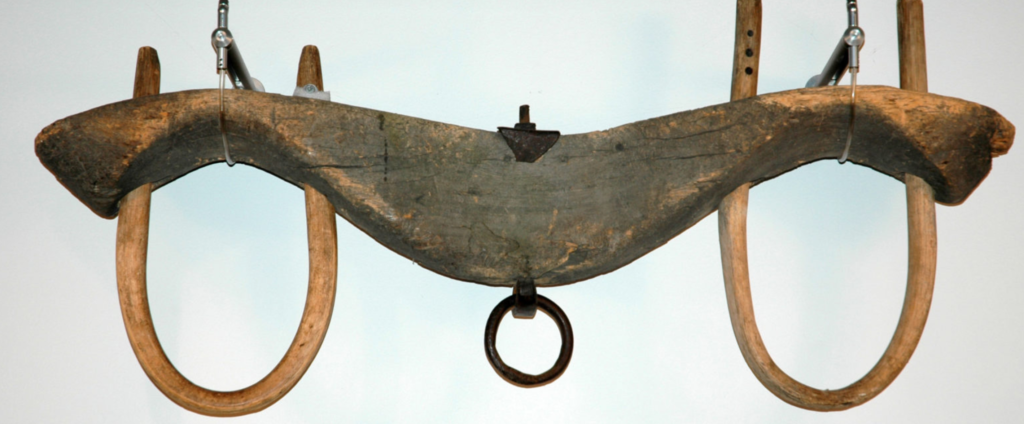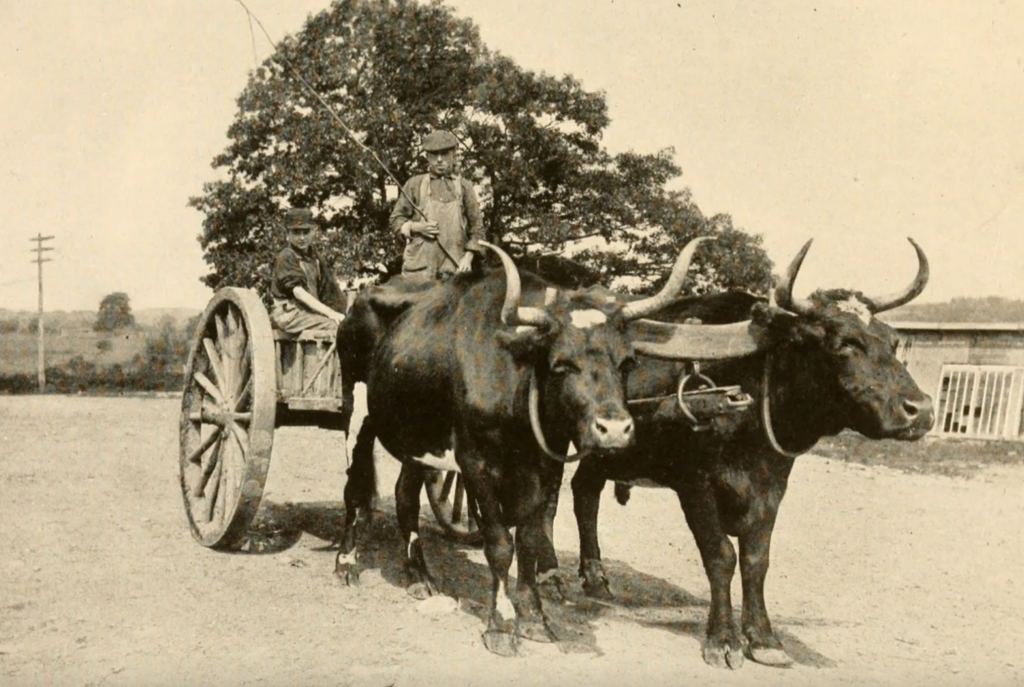For we hear that some among you walk in idleness, not busy at work, but busybodies. Now such persons we command and encourage in the Lord Jesus Christ to do their work quietly and to earn their own bread. (II Thess 3:11-12)
I made great works. I built houses and planted vineyards for myself. I made myself gardens and parks, and planted in them all kinds of fruit trees. I made myself pools from which to water the forest of growing trees . . . Then I considered all that my hands had done and the toil I had expended in doing it, and behold, all was vanity and a striving after wind, and there was nothing to be gained under the sun. (Eccl 2:4-6, 11)
Thank you, Father, for the work you give us. We are grateful for it. May we recognize it as good and you as the gracious giver of that good.
I have said that when you become a Christian, Christ affects everything. We have talked so far about matters usually considered to be spiritual – the Scriptures, prayer, commitment to a church, sharing your faith, fasting, dying to self, and more. I now want to shift our focus a bit and talk about matters that most people consider more profane – work, money, family, pleasure, and relationships.
But before I begin, I need to dispel a misunderstanding. I need to state clearly that the idea I just introduced – that some topics are spiritual and others profane – is largely a fiction. Everything you do is spiritual. Your attitude toward your job is spiritual. How you spend money is spiritual. Where you find your pleasure is spiritual. How you treat your family is spiritual. Life is spiritual. I do not mean that all of life is esoteric and floating in the clouds. I mean instead that in Christ, the spiritual comes to earth. Your relationship with Christ should touch every area of your life, right on down to how you do the dishes.
The spiritual realm should inform you on how to live on earth and empower you to live that way. What this means is that if we are going to talk about the Christian life, we need to talk about life. Today we will begin with one aspect of life – your work.
If I could describe the overall attitude the Bible displays toward work, I would say this: work is good, but work is not God. Let’s briefly look at both halves of that sentence.
Work is Good
God works. In Creation He worked six days making physical objects. Jesus said, “My Father is working until now and I am working” (Jn 5:17). God’s work never stops.
God calls us to work. In Genesis, God told the man and woman to subdue the earth and rule over it (1:28). That is a job. God then told Adam to work a garden (2:15). That is also a job. God gave both jobs to the human race before the Fall. Sometimes people think that work is a consequence of the Fall. That’s not true. The Fall turned work into toil, but it did not invent work. Work was part of the original created order that God said was “very good” (1:31).
The jobs God gave Adam involve a range of activities. Ruling involves authority, management, and stewardship. Subduing the earth involves using the physical resources of the earth for human good and God’s glory. Tending a garden involves manual labor. Thus, prior to the Fall, God not only commands work, but He commands different kinds of work, including the kind of work that we today might consider menial, physical labor. God considers ruling to be good and digging to be good.
In addition, God instituted a Sabbath at Creation, and a Sabbath makes no sense apart from the context of work. God gave an expectation that six days you shall work and one day you shall rest. He even went so far as to model it for us.
Proverbs frequently praises the man who works and criticizes the lazy man.
Paul worked to support himself as he went about preaching the gospel. He said that he who does not work should not eat, and that those in the Lord Jesus should do their work quietly and earn their own living (II Thes 3:10-12) and that if anyone does not provide for his own family, he has denied the faith (I Tim 5:8).
Scripture holds common work in high esteem. If God calls you to be a farmer, He has called you to a good thing. If He calls you to be a computer programmer or a lawyer or a mechanic or a plumber or a teacher or any other legitimate profession, He has called you to a good thing. Work is good. All work that doesn’t center on sin is good.
Such work has several purposes.
First, honest work reflects the God who works. God is not lazy. Thus, if we are to be like God, we are to work.
Second, work not only reflects God but allows us opportunity to bring glory to God through ordinary means. The trees and stars proclaim His glory just by growing and shining. They do their normal work and honor God by it. In the same way, medicine provides the doctor ordinary means for bringing glory to God, and teaching provides the teacher ordinary means for bringing glory to God. If you wait tables or bake cakes, you have an ordinary job through which you can bring glory to God. You don’t have to be a pastor or missionary to glorify God in your work. Landscaping, architecture, truck driving, painting, sewing, housekeeping, raising children and more are all opportunities to glorify God. Whatever you do, do it for Christ and not for you, and you will find great purpose in it. You may work for a company or the government or yourself, but in the end, you work for Christ. Do your work as if you are working for Him.
Third, honest work contributes to subduing the earth and ruling over it. Different types of jobs contribute in different ways. Ranchers provide food. Scientists and teachers help us understand the world we live in. Engineers and contractors design and build things. Medical personnel keep us healthy. All of these tasks and more help the human race use the earth for human good.
Fourth, work provides our basic needs. Food, water, shelter, clothing, and heat all come through work.
For all these reasons, a person filled with Christ should perform his or her work with excellence and integrity. Sloppy work, a lazy man, or a lack of integrity in your job give the world an excuse to castigate Christ. The Christian should never allow that to happen. But excellent work and a diligent man full of integrity give the world a portrait of what Christ looks like in the work place. It brings glory to God through ordinary means. Daniel did this. Joseph did this. And so should we.
Work is Not God
But work is not God. Work may be a good gift from God, but it is only a gift. Work is a tool in life, not the purpose of life. It is a means for glorifying God, not the end in itself. It is good but never ultimate.
In Ecclesiastes, Solomon writes of the vanity of work (2:4-7, 11). I recall speaking to a man who developed products for IBM. He was doing cutting edge research and development for one of the leading technology companies in the world, and he said that he sometimes felt as if his job was a living portrait of Ecclesiastes. He would invest thousands of hours of his life developing a product, only to find that six months after they released it, it had become obsolete. He then would work on the next product, which would shortly become obsolete, and the next one, and the next one. The technology was constantly advancing, and he felt as if he never got anywhere. This cycle was his work. And that cycle is Ecclesiastes.
Arturo (not his real name) had just gotten a Phd in petroleum engineering from the University of Texas, the number one ranked university in the world in petroleum engineering. We were talking about his future, and I was pushing him to think bigger than work and said, “Arturo, I don’t think God made you just so you can find oil. I think He has something more important for you than that.”
I remember a missionary to Japan describing the work culture of Japan. Work was everything. Work was life. If you didn’t work 100 hours a week, you were not devoted enough. Work was how you got ahead. Work was how you proved your worth. Work did not serve you and your fellow humanity. You were its slave. Is it any wonder that Japanese culture is full of much meaninglessness, suicide and despair. If you have nothing beyond earth and your purpose lies in making cars, I feel sorry for you. I’m sure Japanese culture has many noble aspects to it, but the worship of work is not one of them.
Whatever you do for a living involves earth at some level, and earth will pass away. The financial records the accountant kept last year will be meaningless ten years from now. The hair that the stylist styles will need to be restyled in a few months, and every head the stylist works on will have no hair eighty years from now. The car that the mechanic repairs eventually ends up in the junk yard, and the body that the fitness coach trains winds up buried under dirt. Earth passes away. Everything that is on earth passes away. That includes your earthly work.
So if your job interferes with your time for God or your ability to serve His kingdom, you need to make some changes to your job. Your job is not your top priority. Christ is, and that fact is not negotiable.
Therefore, work your job diligently, with integrity and excellence, as if you are serving Christ, but never treat your job as your main purpose. A workaholic is just as dysfunctional as a bum but in the opposite direction. Making your work your main purpose is sin. It replaces God with running a company. No one who does that will be happy in the end, for running a company is not what you were ultimately made for.
People are different. Some will have a greater danger of being lazy than of being a workaholic, and others just the opposite. Whichever of those errors you are more inclined toward, the solution, at its most basic level, is much the same. Do your work for Christ and not for you. Christ will push the lazy person to have a heart for diligence and excellence, and He will remind the workaholic that work is subordinate to the Savior, and that we serve Him above any job we may have. Christ will give that person peace, a new perspective and remind him of his other responsibilities that he is neglecting – spouse, kids, parents, church, missions, God.



Recent Comments